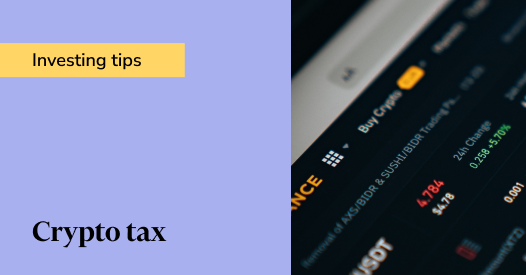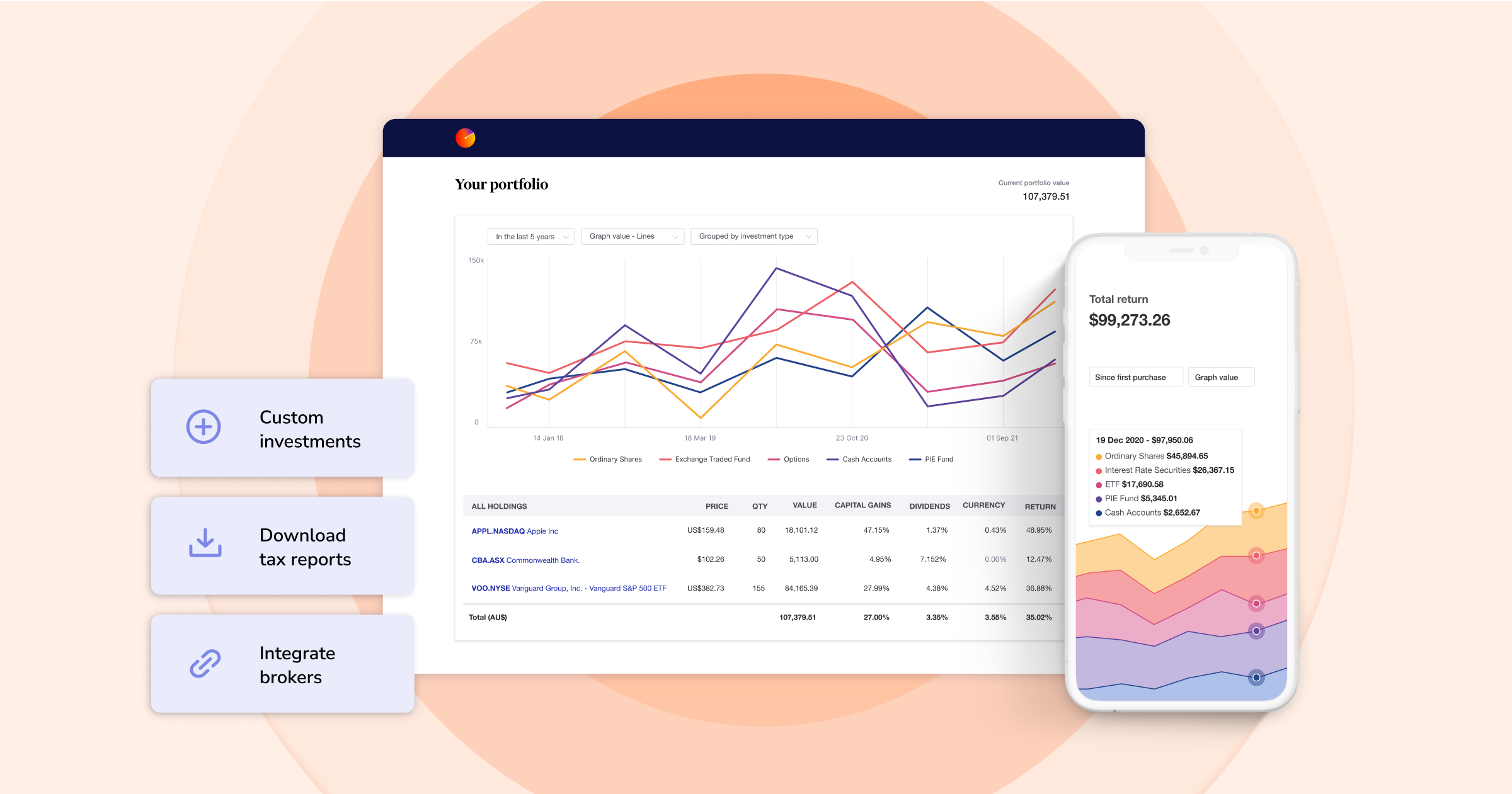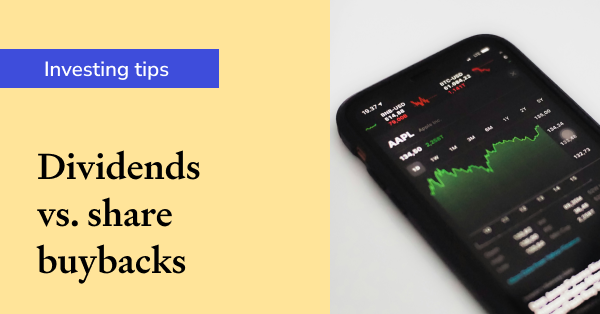Crypto tax: What Australian investors need to know
Disclaimer: The below article is for informational purposes only and does not constitute a specific product recommendation, or taxation or financial advice and should not be relied upon as such. While we use reasonable endeavours to keep the information up-to-date, we make no representation that any information is accurate or up-to-date. If you choose to make use of the content in this article, you do so at your own risk. To the extent permitted by law, we do not assume any responsibility or liability arising from or connected with your use or reliance on the content on our site. Please check with your adviser or accountant to obtain the correct advice for your situation.
Cryptocurrency is an increasingly popular asset for investors but with this comes the need to understand what crypto trading means for your tax obligations. As growing numbers of Australians continue to invest in blockchain assets, the Australian Taxation Office (ATO) is cracking down on undeclared profits on cryptocurrency trading and non-fungible tokens (NFTs). The ATO’s advice is to keep good records of all trades involving the sale or swap of cryptocurrency.

How is crypto taxed in Australia?
As with the sale of assets like shares or property during any given financial year, those trading in cryptocurrency are required to calculate any capital gain or loss and record it on their annual tax return. This is generally the difference between what the asset cost and what the investor received when they disposed of it. However, it is important to note the distinction between using cryptocurrency as a currency, investing in crypto and holding cryptocurrency for sale or exchange in the ordinary course of running a business. For the purposes of retail crypto investors, the main point to note is that the ATO classes cryptocurrencies as a commodity rather than as a foreign currency.
This means that the sale of any cryptocurrency acquired as an investment will attract a tax on any capital gain accrued when it is sold. Even if the market value of the cryptocurrency has changed significantly over a few months, investors do not make a capital gain or loss until they sell their stake. However, investors should note that if they move from buying and selling crypto as a personal investment, with the goal of gradually building wealth, to running a crypto trading, forging or mining business that involves regularly buying and selling for short-term gains, then the ATO may tax them as a trader running a business.
How to calculate CGT on crypto
The first step is for the investor to determine their cost base and ascertain if the capital proceeds from the disposal of the cryptocurrency are more than this cost base. For crypto assets, the cost base includes the purchase price plus all other costs associated with purchasing the cryptocurrency. If the investor makes a profit selling crypto, then the percentage they pay on capital gains tax is the same as their income tax rate (ie. total income accrued during the tax year). However, if the investor has a net capital loss, they can use it to reduce a capital gain made in a later year as is the case with more established asset classes like equities.
Investors should also be aware that if they hold cryptocurrency for more than a year before selling or trading it, they may be entitled to a 50% CGT discount. And even if the market value of the cryptocurrency changes, they won't make a capital gain or loss until they sell. For an asset to qualify for the CGT discount, the ATO advises that the investor must own it for at least 12 months before the 'CGT event' (usually the sale of the asset) happens.
How to reduce crypto tax
Aside from the above example, there are several ways for investors to minimise the crypto tax they pay. However, these are best done in consultation with a tax professional to avoid falling foul of the ATO’s rules. The regulator allows investors to subtract current year losses and prior year losses from their current year gains before applying any discounts. However, investors can only use capital losses to reduce capital gains, not other income. While holding crypto assets for at least 12 months to reduce CGT by 50% is a good initial strategy, timing crypto disposals as strategic losses in order to reduce tax on gains is also a widely used technique. However, this tax-loss harvesting requires the careful tracking of gains and losses throughout the financial year in order to occasionally sell assets at a loss in order to offset CGT.
What are the tax implications of swapping cryptocurrencies?
Investors should note that by exchanging one cryptocurrency for another, they are disposing of one CGT asset and acquiring another CGT asset. And because the ATO classes cryptocurrencies as a commodity rather than as a foreign currency, the market value of the cryptocurrency the investor sells and receives needs to be accounted for in Australian dollars. If the cryptocurrency can't be valued, then the capital proceeds from the disposal are worked out using the market value of the cryptocurrency sold at the time of the transaction.
Record-keeping requirements for crypto
The ATO advises all crypto investors to keep up-to-date and accurate records of all their transactions with or investments in cryptocurrency. Specifically, this should include: the date of the transactions; the value of the cryptocurrency in Australian dollars at the time of the transaction; who the other party was; and receipts of purchase or transfer of cryptocurrency. Keeping good records will also make it easier to calculate and meet tax obligations. The ATO advises investors to consider using an accountant or third-party software to help meet both record-keeping and tax obligations.
Track your investments in crypto and other assets with Sharesight
Join thousands of Australian investors already using Sharesight to track their investment portfolios and optimise their CGT position by signing up today. With Sharesight you can:
-
Automatically track your dividend and distribution income from stocks, ETFs, LICs and mutual/managed funds from over 40 global exchanges – including the value of franking credits
-
Use the dividend reinvestment plan (DRPs/DRIPs) feature to track the impact of DRP transactions on your performance (and tax)
-
See the true picture of your investment performance, including the impact of brokerage fees, dividends, and capital gains with Sharesight’s annualised performance calculation methodology
-
Run powerful tax reports to calculate your dividend income with the taxable income report
-
Plus calculate your CGT obligations with Sharesight’s Australian capital gains tax report and unrealised capital gains tax report
Sign up for a FREE Sharesight account and get started tracking your investment performance (and tax) today.

FURTHER READING

How Sharesight helps advisors track net worth and simplify compliance
We talk to Ryan Jones, Partner, Accountant and Financial Advisor at Jones Louros, about how he uses Sharesight to manage his clients’ investment trusts.

Automatically track Swissquote trades with Sharesight
If you trade using Swiss broker Swissquote, you can automatically import your trading data to your Sharesight portfolio.

Dividends vs. share buybacks: Which is better for investors?
We take a look at dividends and share buybacks, discussing the pros and cons of each, the tax implications and which one is more beneficial for investors.